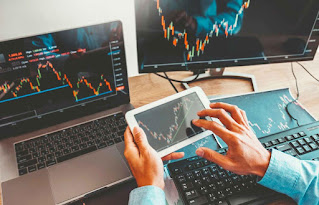When it comes to forex trading, choosing the right broker is crucial. One of the key factors to consider when selecting a broker is the trading platform and tools that they offer. These can have a significant impact on your trading experience, and it is important to find a platform that meets your needs and preferences. In this chapter, we will explore the various aspects of trading platforms and tools and how to find the best options for your needs.
Types of Trading Platforms.
There are several different types of trading platforms available, and each has its own unique features and capabilities. Some of the most common types of platforms include:
- Web-based platforms: These platforms are accessed through a web browser and do not require any software downloads. They are typically easy to use and can be accessed from any device with an internet connection.
- Desktop platforms: These platforms are installed on a computer and offer more advanced features and tools than web-based platforms. They may be more suitable for experienced traders or those who need access to a wider range of features.
- Mobile platforms: These platforms are designed for use on mobile devices such as smartphones or tablets. They can be a convenient option for traders who need to access their accounts on the go.
It is important to consider the type of platform that best suits your needs and preferences. For example, if you prefer to trade from a desktop computer, a desktop platform may be the best option. On the other hand, if you need to be able to access your account from multiple devices, a web-based or mobile platform may be more suitable.
Key Features and Tools.
In addition to the type of platform, you should also consider the specific features and tools that are offered by the broker. Some of the key things to look for include:
- Ease of use: The platform should be easy to navigate and use, with a clear and intuitive interface. This is especially important for beginner traders who may not be familiar with all the features and tools.
- Order types: The platform should offer a range of order types, including market orders, limit orders, and stop orders. This will allow you to implement a variety of trading strategies and manage your risk effectively.
- Charting and technical analysis tools: A good trading platform should offer a range of charting and technical analysis tools to help you analyze market trends and make informed trading decisions.
- Educational resources: Many brokers offer educational materials and resources such as video tutorials, webinars, and market analysis. These can be helpful for traders who are new to the market or who want to improve their skills.
- Customer support: Reliable customer support is essential for any trader, and it is important to choose a broker that offers a range of support options such as live chat, email, and phone support.
By considering these factors, you can find a trading platform and tools that match your needs and preferences.
Summary:
The trading platform and tools offered by a forex broker can have a significant impact on your trading experience. It is important to find a platform that meets your needs and preferences, whether you are a beginner or an experienced trader. By considering the type of platform, key features and tools, and educational and customer support options, you can find a broker that is well-suited to your individual needs.

Comments
Post a Comment